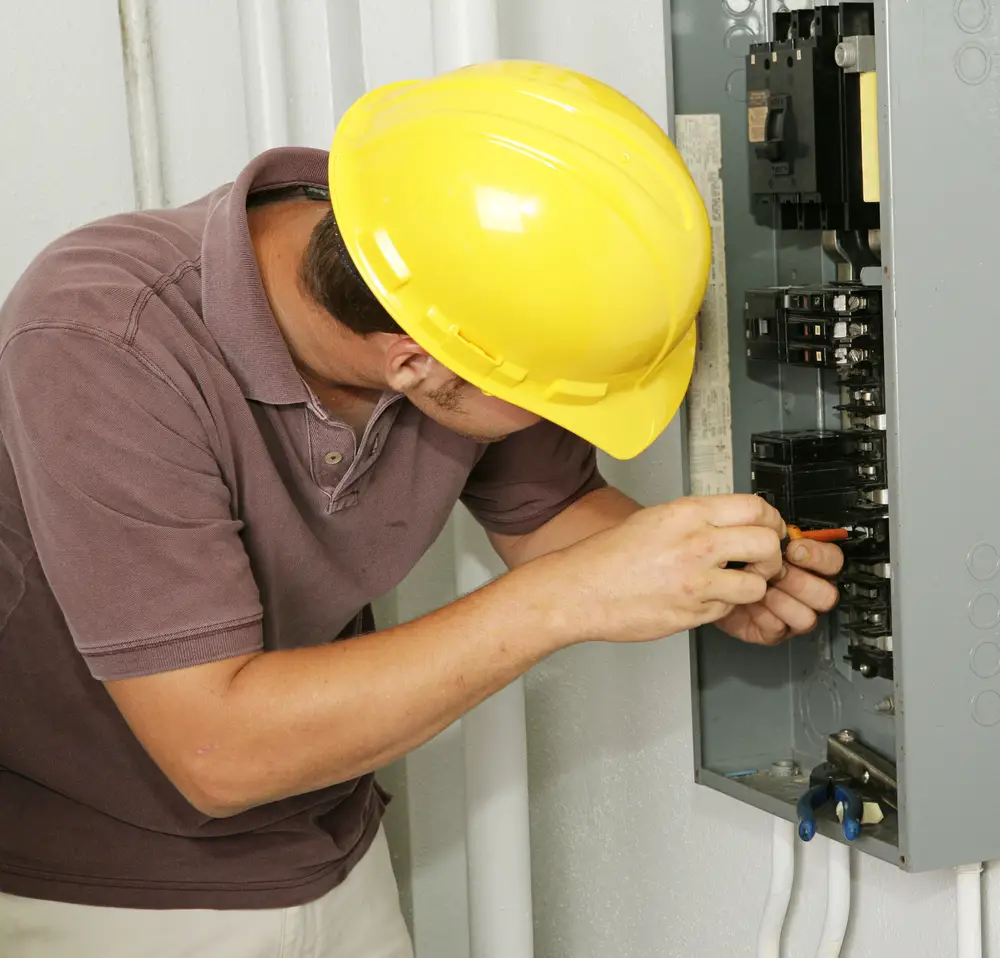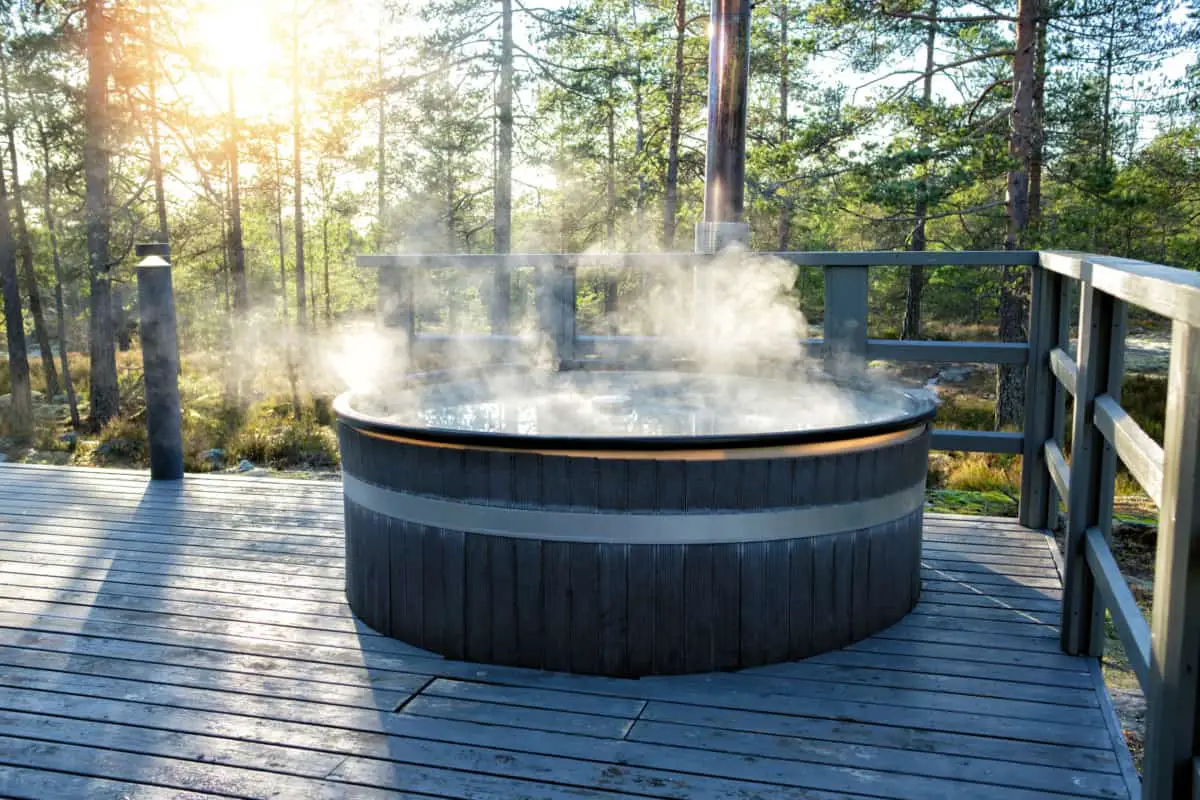Hot tubs are a lot of work to install, but they’re also a lot of fun when you have them up and running. One of the most crucial and complicated parts of installing a hot tub is the wiring that you use. While copper wiring is the most common type of modern wiring, there are also instances when aluminum wire is still used. Can aluminum wire be used for hot tubs, though?
When you’re installing the wiring for a hot tub, you should never use aluminum wiring as its power source. Hot tubs use a ton of power, which means that your electrical wiring is going to heat up and expand. Copper wire is better at withstanding heat and expansion than aluminum wire.
In this article, we’re going to look at all the reasons that aluminum isn’t a good option for powering your hot tub. We’ll also look at what the proper way is to wire up a hot tub and how to do the perfect electrical job.
Why Isn’t Aluminum Wire a Good Idea for a Hot Tub?
Aluminum wire was used for decades as the main source of material for electrical wiring. However, copper came along and proved to be a much more stable and reliable electrical option. While aluminum wire is still used in specific applications, it’s largely been done away with as a source for electrical wiring within a home, especially for high-voltage items. Let’s take a look at why this has happened.
- Aluminum wire expands more
When electricity is flowing through a wire, it creates heat which forces the wire to expand. Electricians discovered that expansion happens more with aluminum wires than it does with copper wires. When aluminum expands and contracts often enough, it can potentially come loose from the terminal screw that’s holding it in place.
A loose wire will result in an unstable electrical connection and a fire hazard. This holds especially true with large appliances such as hot tubs that produce large amounts of heat. In fact, many hot tub manufacturers specifically list that aluminum wiring cannot be used with their products. Using aluminum will then void the warranty on your hot tub if anything happens to go wrong with it.
- Aluminum wire has rust issues
All forms of metal and steel will rust at some point, including electrical wiring. The downside of aluminum wire in regards to rusting is in what form the rust presents itself. Aluminum rust turns into a white oxide that isn’t electrically conductive. This means that if the terminals where the hot tub is wired start to rust, it will impede the flow of electricity that’s powering the hot tub.
Hot tubs give off a ton of moisture and humidity which will inevitably find its way to the electric terminals. If this happens often enough, and you used aluminum wiring, there won’t be enough electricity to power the hot tub, resulting in mechanical issues.
While copper wiring also rusts, the oxide that forms from rusty copper is electrically conductive and doesn’t inhibit the flow of electricity.
- Aluminum wire is softer
Another big problem with aluminum wiring is that it’s much softer than copper wiring. Electricians who aren’t used to working with copper find that they can easily damage the wiring if they’re not careful. Caution can result in over-tightening or under-tightening the terminal screws, both of which can cause electrical malfunctions.
Over-tightening screws into aluminum can crush the material and damage the wiring. Under-tightening the screws because you’re being cautious can be just as bad, however. As stated earlier, aluminum wiring expands more than copper wire when it gets hot. If you don’t make the screws tight enough, the aluminum wire can come loose as it expands and contracts.
How to Safely Use Aluminum Wiring With a Hot Tub
We just went over everything that’s wrong with aluminum wiring and why you shouldn’t use it with hot tubs. However, if you’re installing an older hot tub and don’t have access to anything outside of aluminum wire, there are ways to safely use it.

- Make Sure the Wire is Large Enough
The standard electrical wire size when wiring up a hot tub is 6 AWG. 6 AWG is appropriate for copper wire, but you may want to go up to 4 AWG if you’re using aluminum wire. If the wire is too small for the hot tub, it will get hot which results in expansion and contraction of the electrical wire. Using an aluminum wire that’s larger than the standard copper wire will result in less heat and expansion.
- Use Caution When Making Your Connections
Make sure not to over-tighten or under-tighten your terminal screws when installing aluminum wire. As we previously covered, both of these will result in electrical problems and malfunctions. Make sure that your screw is snug and tight, but don’t over-tighten to the point of causing deep divots in the wiring.
- Use a Water-Proof Terminal Cover
Rust is often inevitable over an extended period of time when it comes to hot tub terminals. However, by using water-proof equipment and covers, you can keep this from happening for as long as possible. Make sure to use electrical equipment that’s approved for outdoor use near water hazards when installing your hot tub.
